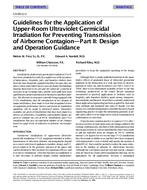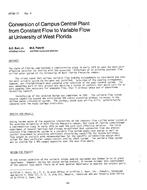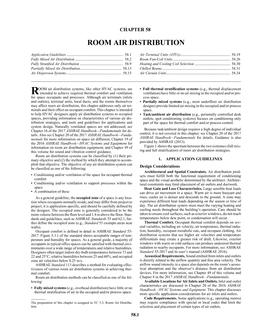Variable Refrigerant Flow (VRF) heat pumps are often regarded as energy efficient air-conditioning systems which offer electricity savingsas well as reduction in peak electric demand while providing improved individual zone setpoint control. One of the key advantages of VRFsystems is minimal duct losses which provide significant reduction in energy use and duct space. However, there is limited data available to showtheir actual performance in the field. Since VRF systems are increasingly gaining market share in the US, it is highly desirable to have moreactual field performance data of these systems. An effort was made in this direction to monitor VRF system performance over an extended periodof time in a US national lab test facility.
Due to increasing demand by the energy modeling community, an empirical model to simulate VRF systems was implemented in thebuilding simulation program EnergyPlus. This paper presents the comparison of energy consumption as measured in the national lab and aspredicted by the program. For increased accuracy in the comparison, a customized weather file was created by using measured outdoor temperatureand relative humidity at the test facility. Other inputs to the model included building construction, VRF system model based on lab measuredperformance, occupancy of the building, lighting/plug loads, and thermostat set-points etc. Infiltration model inputs were adjusted in the beginningto tune the computer model and then subsequent field measurements were compared to the simulation results.
Differences between the computer model results and actual field measurements are discussed. The computer generated VRF performanceclosely resembled the field measurements.
Citation: ASHRAE Conference Papers, Denver, CO
Product Details
- Published:
- 2013
- Number of Pages:
- 8
- File Size:
- 1 file , 540 KB
- Product Code(s):
- D-DE-13-C072


